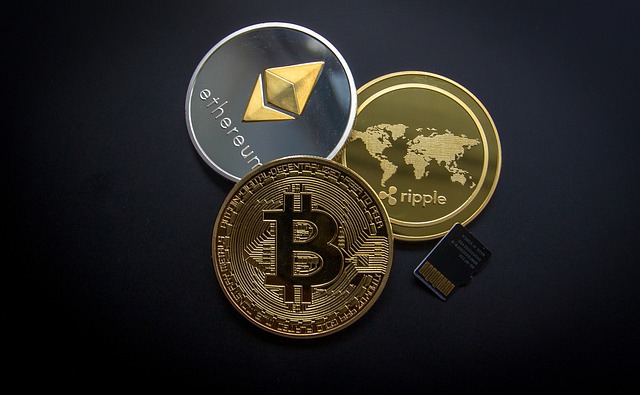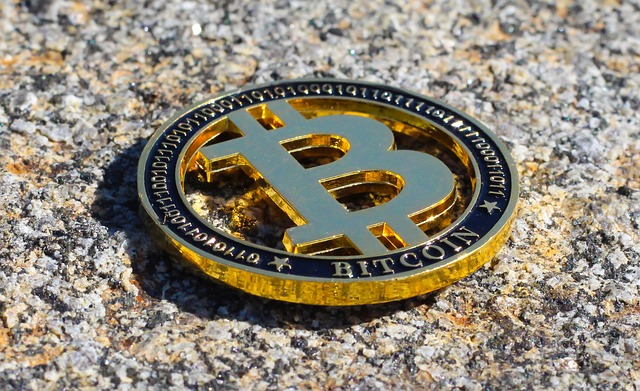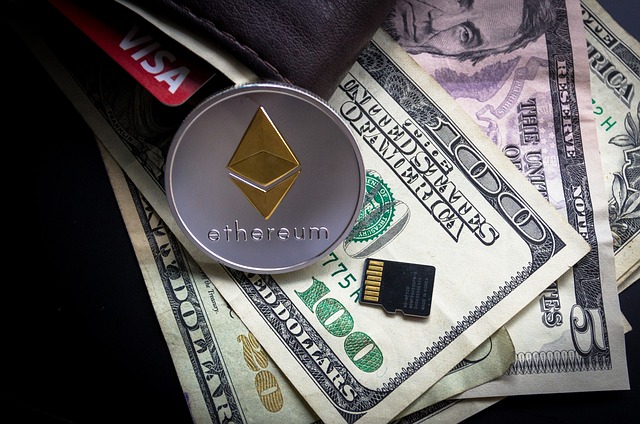Decentralized Finance in Simple Terms: A Primer
Decentralized Finance in Simple Terms: A Primer

What is DeFi and why it matters
Decentralized Finance, or DeFi, is revolutionizing the way we think about traditional finance. Unlike traditional financial systems that are centralized and controlled by banks and institutions, DeFi operates on a decentralized blockchain network, allowing users to access financial services without the need for intermediaries. This eliminates the need for trust in third parties and opens up a world of financial opportunities for individuals worldwide.
The significance of DeFi lies in its ability to provide greater financial inclusivity and accessibility. With traditional financial systems, many people, particularly those in underbanked regions, are often excluded from accessing basic financial services such as loans, savings accounts, and investments. However, with DeFi, anyone with a smartphone and an internet connection can participate in the global financial network, empowering them to take control of their financial future. By removing the barriers erected by traditional systems, DeFi has the potential to level the playing field and create a more inclusive financial system for all.
How DeFi is changing the traditional financial landscape
Decentralized Finance, more commonly known as DeFi, has emerged as a groundbreaking force that is reshaping the traditional financial landscape. Unlike traditional financial systems that rely on centralized intermediaries such as banks and other financial institutions, DeFi leverages blockchain technology to eliminate the need for intermediaries and create a peer-to-peer financial ecosystem. This innovative approach opens up a world of possibilities by providing individuals with greater access to financial services and opportunities that were previously exclusive to a select few.
One of the key ways that DeFi is transforming the traditional financial landscape is by enabling greater financial inclusivity. In many countries, a significant portion of the population remains unbanked or underbanked, lacking access to basic financial services. DeFi empowers these individuals by providing them with access to a range of financial services, such as lending, borrowing, and trading, without the need for a traditional bank account. Through the use of smart contracts and decentralized applications, DeFi platforms are able to provide financial services to anyone with an internet connection, regardless of their location or economic status. This democratization of finance has the potential to bridge the gap between the haves and have-nots, allowing for greater economic participation and empowerment for all.
The key principles behind DeFi
Decentralized Finance, or DeFi, is built on two key principles: transparency and autonomy. Transparency refers to the open and public nature of the blockchain technology that underpins DeFi. Unlike traditional financial systems that operate behind closed doors, DeFi provides a high level of transparency by recording all transactions on a public ledger that can be easily accessed and verified by anyone. This transparency creates trust and eliminates the need for intermediaries such as banks or governments to oversee transactions.
Autonomy is another important principle of DeFi, which empowers individuals to have full control over their financial activities. With DeFi, users no longer need to rely on centralized institutions to manage their money. Instead, they can interact directly with the decentralized applications (DApps) built on the blockchain, which operate autonomously based on pre-defined smart contracts. This allows individuals to seamlessly execute financial transactions, access lending and borrowing services, and participate in various investment opportunities without any intermediaries or permission from third parties.
These two key principles of transparency and autonomy form the foundation of the DeFi ecosystem, enabling individuals to have greater control over their financial decisions while fostering a more inclusive and accessible financial system for all. By leveraging blockchain technology, DeFi has the potential to revolutionize the traditional financial landscape and democratize access to financial services around the world.
Understanding blockchain technology and its role in DeFi
Blockchain technology plays a crucial role in the ecosystem of decentralized finance (DeFi). At its core, blockchain is a decentralized and immutable ledger that ensures transparency and security in financial transactions. Unlike traditional centralized systems, where a single authority controls and verifies transactions, blockchain relies on a network of computers or nodes to validate and record transactions in a distributed manner.
The beauty of blockchain lies in its ability to eliminate intermediaries and create trust among participants.

Exploring the advantages of decentralized finance
Decentralized finance, or DeFi as it is often referred to, offers a plethora of advantages and benefits that are reshaping the traditional financial landscape. One of the key advantages of DeFi is its ability to provide financial services to individuals who have been excluded from the traditional banking system. With DeFi, anyone with an internet connection can access and utilize a wide range of financial products and services, such as loans, savings accounts, and even investment opportunities, without the need for a central authority or intermediary.
Moreover, the transparency and security offered by decentralized finance are immensely attractive to users. Since DeFi applications are built on blockchain technology, every transaction and operation is recorded on a public ledger, providing a level of transparency that is unmatched in traditional finance. Additionally, the use of smart contracts ensures that transactions are executed automatically and without the need for intermediaries, eliminating the possibility of human error or manipulation. These features not only instill trust and confidence in users but also significantly reduce the risk of fraud and misconduct.
The different types of DeFi applications and platforms
Decentralized Finance (DeFi) has emerged as a promising advancement in the financial sector, offering a variety of applications and platforms to revolutionize the way we handle our finances. One such type of DeFi application is decentralized exchanges (DEX). These platforms allow users to trade cryptocurrencies directly with each other, eliminating the need for intermediaries like traditional exchanges. By leveraging smart contracts and blockchain technology, DEXs ensure transparency, security, and control over one’s assets, providing users with greater autonomy and accessibility in the world of digital assets.
Another type of DeFi application gaining traction is decentralized lending platforms. These platforms enable individuals to borrow and lend cryptocurrencies without the involvement of traditional financial institutions. Through smart contracts, borrowers can secure loans by collateralizing their assets, while lenders earn interest rates on their deposited funds. By eliminating the need for intermediaries, decentralized lending platforms provide more inclusive financial services to individuals who may not have access to traditional banking systems. With the potential to unlock liquidity and enable peer-to-peer lending on a global scale, decentralized lending platforms have the power to reshape the way we think about borrowing and lending.
The risks and challenges associated with DeFi
While decentralized finance (DeFi) offers numerous benefits and opportunities, it is not without its risks and challenges. One of the primary concerns is the vulnerability of smart contracts to coding errors or vulnerabilities. Since DeFi relies heavily on smart contracts to automate transactions and execute agreements, any issues in the code can result in significant financial losses for users. Therefore, it is crucial for developers to thoroughly audit and test their smart contracts to minimize such risks.
Another challenge is the lack of regulation and oversight in the DeFi space. Unlike traditional financial systems, which are subject to strict regulations and authorities, DeFi operates in a decentralized and often anonymous environment. This can attract bad actors, leading to scams, hacks, and fraudulent activities. Additionally, the absence of a regulatory framework may hinder the resolution of disputes or provide recourse for victims.

How to get started with DeFi
To get started with DeFi, the first step is to acquire some cryptocurrency. This is because most decentralized finance platforms operate on blockchain networks and require users to transact in digital currencies like Bitcoin or Ethereum. There are various ways to acquire cryptocurrency, such as purchasing it through a cryptocurrency exchange or earning it through online platforms that offer rewards for completing tasks or providing services.
Once you have obtained the necessary cryptocurrency, the next step is to set up a digital wallet to securely store and manage your funds. A digital wallet is essentially a software application that allows you to safely store your cryptocurrency and interact with DeFi platforms. It is important to choose a wallet that supports the specific cryptocurrency you have acquired and offers strong security measures, such as multi-factor authentication and encrypted backups.
With your cryptocurrency and digital wallet in place, you can then start exploring the world of DeFi. Start by researching and identifying decentralized finance platforms that align with your interests and financial goals. Some popular types of DeFi applications include decentralized exchanges, lending platforms, and decentralized stablecoins. Each platform may have its own requirements and processes for getting started, so be sure to carefully read their documentation and familiarize yourself with their user interfaces.
Once you have chosen a platform to engage with, take the time to understand its specific features and functionalities. This may involve learning about different types of transactions, like swapping one cryptocurrency for another or lending your funds to earn interest. Additionally, keep in mind that DeFi platforms are built on smart contract technology, which means they operate autonomously and do not require intermediaries. This allows for decentralized and transparent transactions, but it also means that you need to be extra cautious when interacting with these platforms to avoid potential risks.
As you embark on your DeFi journey, it is essential to stay informed and educated about the latest developments, trends, and best practices in the decentralized finance space. This will not only help you make informed decisions but also protect your funds from potential scams or vulnerabilities. Following reputable sources, joining online communities, and participating in discussions can provide valuable insights and opportunities to connect with other DeFi enthusiasts.
Remember, getting started with DeFi can be an exciting and potentially lucrative venture, but it is crucial to approach it with caution and do thorough research. By acquiring cryptocurrency, setting up a digital wallet, choosing the right DeFi platform, and continuously educating yourself, you can take advantage of the numerous opportunities that decentralized finance has to offer.
Common misconceptions about DeFi debunked
Misconception 1: DeFi is only for tech-savvy individuals
Contrary to popular belief, DeFi is not exclusively designed for tech enthusiasts or individuals with extensive knowledge of blockchain technology. While it is true that understanding the underlying principles of blockchain can be helpful, it is not a prerequisite to participate in decentralized finance. DeFi platforms and applications are evolving to become more user-friendly and accessible to individuals from various backgrounds. With a growing number of intuitive user interfaces and simplified processes, even those with limited technical expertise can now engage in DeFi without feeling overwhelmed. The key is to start with small steps, explore different platforms, and gradually become familiar with the necessary tools.
Misconception 2: DeFi is primarily used for illegal activities
It is a misconception to assume that DeFi is primarily associated with illicit activities. While it is true that the decentralized nature of DeFi presents challenges in regulatory oversight, it does not imply that its purpose is solely for facilitating illegal transactions. In fact, DeFi has the potential to offer greater transparency and security compared to traditional finance, as all transactions are recorded on the blockchain and can be easily audited. Moreover, many legitimate DeFi applications are emerging, showcasing practical use cases in areas like lending, borrowing, and earning interest on digital assets. It is essential to differentiate between the actions of a few bad actors and the broader potential that DeFi holds for financial inclusion and innovation.
The future of decentralized finance and its potential impact
Decentralized finance (DeFi) has swiftly gained traction in recent years, offering a glimpse into the future of the financial landscape. Through the use of blockchain technology, DeFi has the potential to revolutionize traditional financial systems by providing an open, transparent, and permissionless platform for financial transactions. As more individuals become accustomed to the benefits of DeFi, its potential impact on the global economy cannot be underestimated.
One of the key advantages of decentralized finance is its ability to provide financial services to the unbanked and underbanked populations around the world. With traditional banking institutions often inaccessible or costly for individuals in remote areas or developing countries, DeFi presents an opportunity to bridge this gap. By leveraging blockchain technology, DeFi enables anyone with an internet connection to access financial services such as lending, borrowing, and even earning interest on their savings. This inclusivity has the potential to empower individuals and communities, leading to greater financial stability and economic growth on a global scale.
What is DeFi and why does it matter?
DeFi, short for decentralized finance, refers to a new financial system built on blockchain technology that aims to eliminate intermediaries. It matters because it allows for financial services like lending, borrowing, and trading to be accessible to anyone with an internet connection, without the need for a traditional bank.
How is DeFi changing the traditional financial landscape?
DeFi is disrupting the traditional financial landscape by providing a more inclusive and transparent system. It is challenging the monopoly of banks and financial institutions, allowing individuals to have full control over their assets and participate in various financial activities without relying on third parties.
What are the key principles behind DeFi?
The key principles behind DeFi are openness, transparency, decentralization, and interoperability. These principles ensure that financial transactions and operations are conducted in a trustless and verifiable manner, without the need for intermediaries.
Can you explain the role of blockchain technology in DeFi?
Blockchain technology is the underlying technology that powers DeFi. It provides a secure and transparent ledger where all transactions and interactions are recorded. By using smart contracts, which are self-executing agreements coded on the blockchain, DeFi applications can automate processes and ensure trust among participants.
What are the advantages of decentralized finance?
Decentralized finance offers several advantages, including increased accessibility, lower fees, improved privacy, faster transactions, and global interoperability.

What are the different types of DeFi applications and platforms?
There are various types of DeFi applications and platforms, including decentralized exchanges (DEXs), lending and borrowing platforms, stablecoins, prediction markets, and decentralized insurance platforms. Each serves a specific purpose within the DeFi ecosystem.
What risks and challenges are associated with DeFi?
DeFi is still a nascent industry and is not without risks. Some challenges include smart contract vulnerabilities, regulatory uncertainty, scalability issues, and potential for hacks or scams. It is important for users to do thorough research and exercise caution when participating in DeFi.
How can I get started with DeFi?
To get started with DeFi, you’ll need a cryptocurrency wallet, such as MetaMask, and some cryptocurrency to use within the DeFi ecosystem. You can then explore various DeFi platforms and applications, such as decentralized exchanges or lending platforms, and start participating in the available services.
What common misconceptions about DeFi should be debunked?
One common misconception is that DeFi is only for tech-savvy individuals. While some technical understanding is beneficial, there are user-friendly interfaces and guides available to help newcomers navigate the DeFi space. Another misconception is that DeFi is completely risk-free, but as with any investment or financial activity, there are risks involved.
What is the future of decentralized finance and its potential impact?
The future of decentralized finance holds great potential. As more people recognize the benefits of DeFi, we can expect increased adoption and innovation within the space. DeFi has the potential to revolutionize traditional finance, making it more accessible, efficient, and inclusive for individuals worldwide.
Todays Featured Product:
Buy, exchange and grow your crypto securely with a Ledger hardware wallet, combined with the Ledger Live app. It’s never been easier to keep your crypto safe and accessible. Buy direct from Ledger.com and get todays Special Offers Here.




